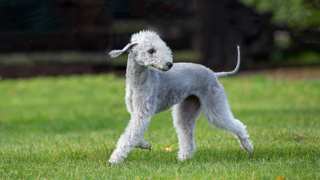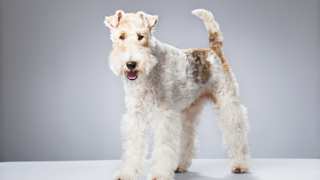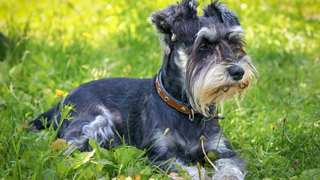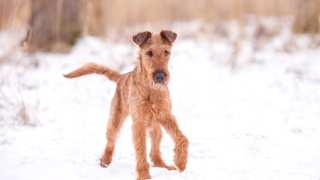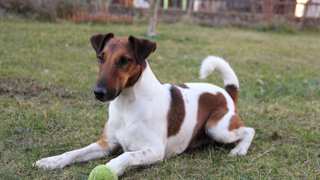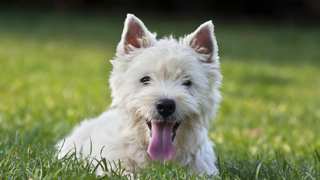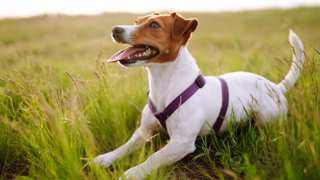Though not the largest of breeds, these dogs are active and curious--so Welsh Terrier exercise requirements are moderately high. Welshies are also intelligent, so they'll need activities that both condition them physically (walking, fetch) and stimulate them mentally (games, canine sports).
Adult Welshies, depending on their age and overall activity levels, will need at least 45 minutes of dedicated exercise per day. You can start exercising your Welshie puppy when it's three months old by taking it on short walks, then you can increase the walks' length as the pup grows.
Precautions with Welsh Terrier exercise:
- Don't exercise puppies too hard before they're nine months old
- A leash is required when exercising in public
- Yards should be securely fenced to keep the dog from running off
- Possible separation anxiety; exercises should be done together with people
- Sensitive to temperature extremes; don't exercise in sweltering or freezing temps
It's important to exercise your Welshie every day. These energetic, smart dogs are easily bored, so without consistent activity they'll make their own "fun"--like digging, barking, and destructiveness! Regular exercise will be great for both the dog's and your own peace of mind. A few Welsh Terrier exercise ideas:
- Walking: Two 20-minute walks per day is a good target
- Fetch/Frisbee: Welshies love chasing a ball, stick, or Frisbee
- Hide-and-Seek: Great indoor activity; give the dog a treat when it finds you
- Canine Sports: These dogs can excel at obedience or agility trials and other events
- Dog Park: If properly socialized, your Welshie will enjoy the company of other dogs
- Hiking: Excellent bonding activity
When indoors, give your Welsh Terrier access to balls or toys that will allow the dog to burn excess energy. It's also good to have a regular exercise schedule for the dog, such as walks after breakfast and dinner and playtime in the afternoon.

